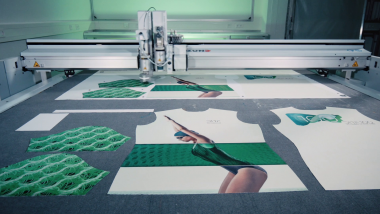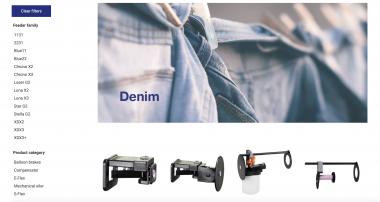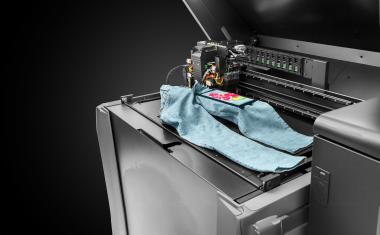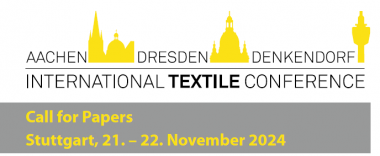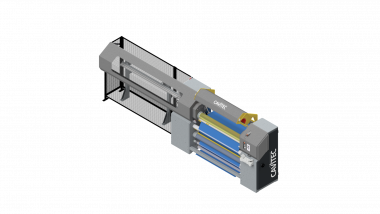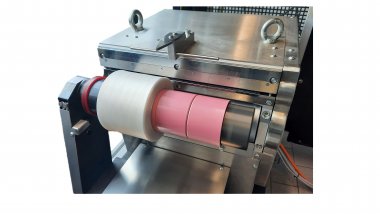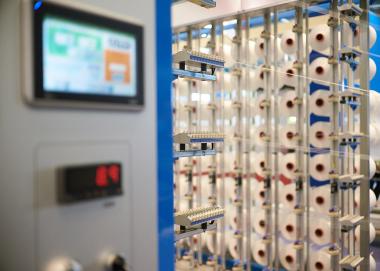DITF: Digital Textile Micro Factory at drupa
Together with international partners from industry and research, the DITF are presenting the Digital Textile Micro Factory at drupa's touchpoint textile (from May 28 to June 7, 2024). A fully networked on-demand production of sports products will be presented - from virtual design to the finished product.
One highlight is the material buffer between the printer and cutter, which links the continuous printing process with the step-by-step cutting process. At the end of the production chain, a robot arm sorts all the cut parts belonging to a product, such as the front and back sections, sleeves and collar trim of a T-shirt, into the corresponding boxes. Manual handling is only necessary in exceptional cases.
In future, digitally networked design and production chains will make it possible to react quickly and specifically to customer wishes and trends. This approach protects the environment and conserves resources: instead of producing mass-produced goods for the trash, the products are tailored precisely to requirements. At the trade fair, the carbon footprint from virtual development to the finished product will also be determined and explained using a model.
Deutsche Institute für Textil- und Faserforschung (DITF)


